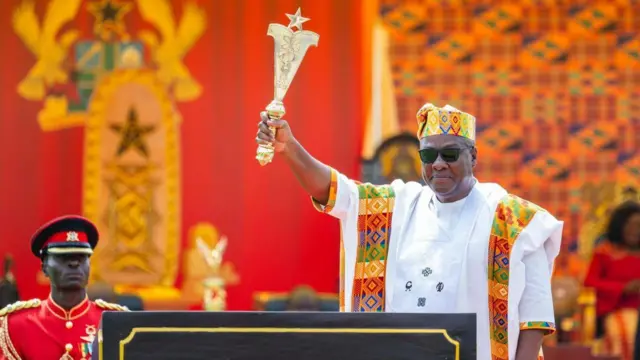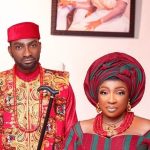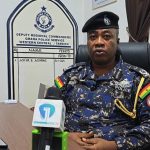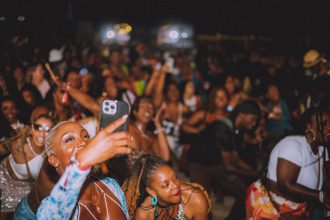‘Integrity, respect, compassion, and fairness become obstacles to people who think winning is everything’ – Michael Josephson.
Professor Nkwantabisa: Good day Mr. Abroenye. I thought you have returned to the States.
Mr. Abroenye: Good day Prof. I will go back soon. It is good to see you. I had in mind contacting you to hear your views on whether President Mahama’s actions and decisions so far give some assurance of hope and seriousness.
Professor Nkwantabisa: I admire you for the fact that though you are not a partisan politician you are always concern of the governance and welfare of Ghana. Your concern is a thoughtful one because one can discern the seriousness or otherwise of a person by observing that person’s initial actions and decisions.
I will say it is too early to give a verdict on President Mahama’s initial actions and decisions. Nonetheless, he appears to be fairly serious judging from some of his initial actions and appointments. His inaugural speech was, for instance, spiced with maturity and hope.
Dr. Basabasa: Are you really sure Prof? I do not agree with you. I am wondering whether you have, for instance, seen or read his press release on the Operation-Recover-All-Loot (ORAL) Committee?
Professor Nkwantabisa: Yes, I have. ORAL is Mahama’s anti-corruption agenda which seeks to make corruption costly and severely punish perpetrators of corruption. It also seeks to recover looted funds and assets for national development. Accountability and the fight against corruption is one of the main focus areas of Mahama’s new presidency.
Opanin Wisdom: Dr. Basabasa,why are you laughing at Prof?
Dr. Basabasa: I am laughing because Prof. seems to be oblivious of the fact that many leaders in Ghana are good at talking or putting documents together or setting-up committees but the effective implementation of such documents or execution of the mandate of such committees eventually becomes a mirage.
A closer study of the political history of this nation will reveal that ORAL is just another political package to excite many Ghanaians but will most likely deliver little or no results. Do you remember what Ex-President Akufo-Addo said during his inaugural speech?
Was he able to protect the public purse and severely deal with the perceived corrupt officials who treated public office as money-making machines? You see he gave Ghanaians so much hope but his tenure ended on a note of total disappointment. His last State of Nation Address fell short of any good record of having seriously tackled corruption during his eight-year tenure. I would like to be in the shoes of a doubting Thomas until I see real results delivered by ORAL.
Opanin Wisdom: We should at least give ORAL the benefit of doubt and hope that it will succeed. The concept of ORAL is a laudable one and should be applauded. My main concern is with the ORAL Committee.
I have read and heard that the committee’s main function is just to receive information about corruption from Ghanaians, assess them and subsequently forward them to the requisite lawful bodies and institutions for possible prosecutions. Its main work thus evidence gathering. I am aware of legitimate questions about the legal basis of the committee. Beyond the legalities, it seems to me that the work of the committee will create needless bureaucracy.
I think we should rather think of pragmatic approaches and systems that will encourage Ghanaians and other residents to report alleged corrupt conducts to the relevant bodies or institutions directly. Relevant incentive and safety mechanisms should also be put in place. Besides, we need to implement existing legal provisions that empower, encourage and protect whistle-blowers of the ills in Ghana. We need to also focus on strengthening the work of anti-corruption bodies and institutions. Democracy and accountable governance thrive on strong state institutions, not politically motivated committees.
Mr. Abroenye: I share in the views of Opanin Wisdom. Another key concern with ORAL is that it appears to target officials of Akufo-Addo and Bawumia led Government. While this perceived target in itself is not wrong; it raises legitimate questions about the credibility of ORAL. To demonstrate more seriousness, ORAL should begin from the Mills-Mahama led Government. President Mahama should also subject his previous administration to ORAL to demonstrate to Ghanaians that he is in real business. I am looking forward to see how President Mahama will deal with allegations of corruption against persons in his new Government. True charity begins from a person’s home.
Dr. Basabasa: Exactly, Mr. Abroenye. Crime has no expiry date hence the need to extend the boundaries of ORAL to previous administrations other than just targeting that of Akuffo-Addo. My biggest concern with the ORAL Committee is its core function. Is the committee going to gather rumours, suspicions and hearsays? It is a common knowledge that multitudes of rumours and suspicions do not constitute evidence in law. Hearsay testimonies are also usually subjected to high legal standards before they can become evidence.
The ORAL Committee is needless if its main work is evidence-gathering because its work will be limited and be frustrated because of its lack of requisite legal capacity. Is it the case that the existing anti-corruption bodies and institutions are unable to gather evidence to stir their prosecutorial mandates? Will a partisan committee, such as the ORAL Committee, be able to do a better job than legally established state institutions? One of the main reasons for Ghana’s failure to fight corruption is lack of true political will and political interferences in the work of anti-corruption bodies and institutions.
I think the Office of the Attorney-General and the Ministry of Justice has been failing in dealing with suspected corruption cases because of political colours. I also believe the Office of the Special Prosecutor (OSP) is almost becoming a white-elephant in its anti-corruption mandate if urgent steps are not taken to salvage its sinking image. As for the Economic and Organised Crime Office (EOCO), the less said about it the better.
It is high time we did forensic audit of these institutions to diagnose the challenges frustrating their core mandates. We should focus on how to strengthen these institutions and other existing bodies to enable them deliver tangible results rather than creating committees. Despite the various spirited-defences that were marshalled for the establishment of OSP, a number of Ghanaians remain unconvinced as to whether it has truly lived up to expectations. Let’s not deceive ourselves into thinking that a cat will be fiercer than a lion.
Professor Nkwantabisa: Well said Dr. The ORAL Committee is definitely not fiercer than EOCO and OSP. However, I believe EOCO, OSP and other like-minded institutions and Civil Society Organisations (CSOs) can be empowered to ride on the wheels of the concept of ORAL to do better job in this new era.
Opanin Wisdom: In addition to what Prof. has just said, I think ORAL should be clothed with fairness, integrity and credibility. There is no need for rushing the implementation of ORAL because of a political victory. Its implementation should be driven by soberness, meekness, thoughtfulness, truthfulness, lawfulness and more seriousness.
Richard Obeng Mensah, author of Daily Wisdom. The writer is an award-winning prolific author of 9 books, and over 250 articles and op-eds on legal and non-legal themes. The writer is a Fellow of the Brew-Hammond Energy Centre, KNUST, Kumasi-Ghana. He is a pastor, lawyer, law lecturer, certified life and leadership coach, and a blogger. The writer is also a Chevening Scholar and a scholar of ALI-incubator.
Email: richardobengmensah@gmail.com
Mobile: +233 (0)246 556 774.
















